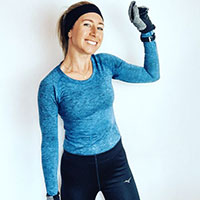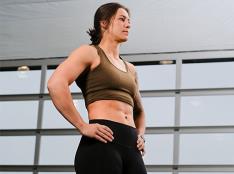
The winter season can bring many changes to your athletic needs—from indoor training to a lack of motivation. But your nutritional needs may change, too. Here are a few situations where that may be the case.
Severe Cold
Typically, normal exercise produces enough heat to keep the body warm. However, training in severe cold, your body has to work harder to perform the same workout than in more comfortable conditions. An hour of shivering alone can burn 400 calories and activate brown fat, a type of fat that metabolizes energy to produce heat. If you’re heading out for a day of freezing nordic skiing, hiking or snowshoeing, pack extra snacks to help get you through the effort.
Base Training
Different seasons come with different training goals. In winter, many endurance athletes are in the base training season. This means upping training volume but decreasing intense training to build a strong aerobic foundation. For your diet, this requires consuming more complex carbohydrates and fats to fuel the long endurance efforts, with less simple sugars as the intensity doesn’t demand those immediate carbohydrates. This season is also a good time to start building nutrient timing into your routine and experimenting with using whole foods in your training.
Indoor Workouts
These are typically done in a garage, basement or gym setting that have hot, dry, stagnant air which is an environment that can promote excess sweating. Weighing yourself before and after the session can help you determine how much to drink. Start by pre-hydrating by drinking 16 ounces of fluids in the couple hours prior to training. Throughout the training, take sips every several minutes. More sweat lost also means more electrolytes lost; the main one being sodium, which maintains fluid balance, helps to rehydrate and improves the thirst response. When performing hard efforts in a hot indoor environment, opt for a drink mix with higher sodium content. Research suggests most athletes need 450mg per hour, but getting a sweat electrolyte test can provide more individualized results.
Duration in the Gym
Hitting the gym is a winter activity for many endurance athletes who would typically train outside when weather allows. When you think of your workout, generally the time spent being active—say an hour run and 30 minutes of weightlifting—is considered. That 90-minute effort might not signal that you need fuel. However, that 90 minutes of actual training could easily turn into over 3 hours when you factor in driving to the gym, changing, doing a sauna, stretching, running into friends and chatting, taking rests between sets, and more. During that extended time, your body will be hungry and need food. Forgetting to factor in this extended time can leave you bonking or overeating later in the day. Be proactive and eat a nutritious pre-gym workout meal a couple hours before the workout, and make sure to stash extra snacks like granola bars, fruit, supplements, or recovery mix in your gym bag.
READ THIS NEXT: How to Fuel Your Training and Avoid Illness During Winter
About the Author

Get ACTIVE on the Go


Couch to 5K®
The best way to get new runners off the couch and across the finish line of their first 5K.
Available for iOS | Android





Discuss This Article